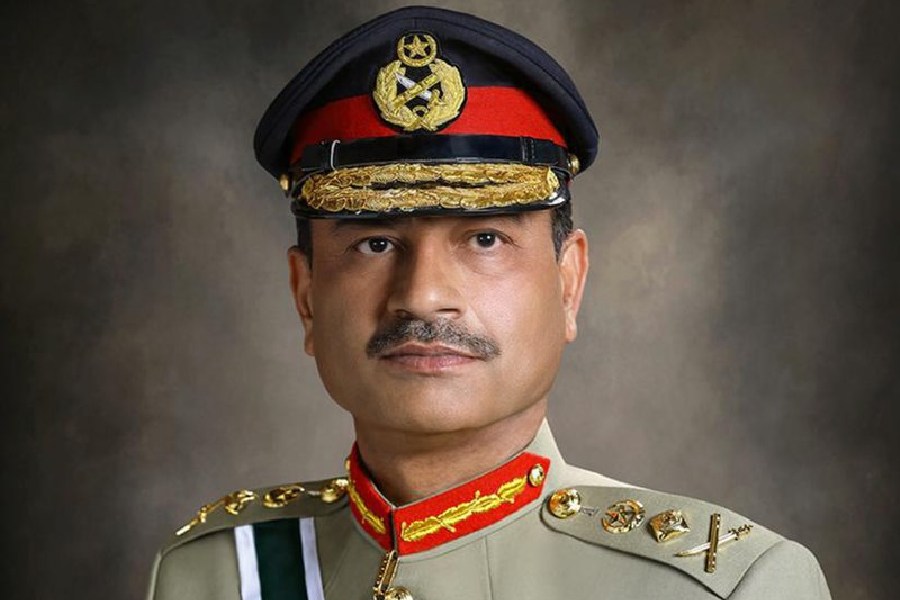The last thing the recent — and pointedly Islamic theology-based — aggression of the Pakistani army chief, Asim Munir, should cause is surprise. His outburst, in the presence of the Pakistani prime minister, Shehbaz Sharif, and a gathering of mostly overseas Pakistanis, rang out like an outcry alchemised by desperation and the need for distraction. General Munir’s vociferous resort to Muhammad Ali Jinnah’s “Kashmir is our jugular vein” dictum sounds typically like a return to the Pakistani Establishment’s default mode of attempting to address domestic failures by rallying sentiment on anti-India rhetoric and religious emotionalism. Resilient as it has been as a nation, Pakistan is spiralling down the vortex of another domestic churn. It has to do not merely with the palpable unease and unrest in domestic politics whose spine is the continued incarceration of the former prime minister, Imran Khan, still perceived as yards ahead of the competition in street popularity. It has equally to do with the growing perception among Pakistanis that the leadership, whatever its hue (it has often been khaki), has let the nation down. Leading actors of the Pakistani intelligentsia and entertainment industry, arguably the country’s most admired export, seem no longer hesitant to articulate this sentiment. Deepak Perwani, a pioneering and celebrated Karachi-based fashion designer and an influential voice in Pakistan, has been unafraid to flag his country as an abject disappointment compared to India. It is of note too that an overwhelming number of Pakistani celebrities have chosen foreign (often dual) citizenship and that the credibility of Pakistani passports is in question.
On the bilateral front, the frustration of Pakistan’s formidable military-intelligence complex is understandable. The ‘thousand cuts’ strategy to bleed India has been scissored out of the paradigm for good measure because of two factors — the zero-tolerance credo of the Narendra Modi-Amit Shah Establishment with regard to terrorism, often at the cost of drawing flak for collateral casualties; and a strong signal to Valley-based secessionist and militant groups that they shall get no quarter as long as they do not abdicate their long-held aspiration to either merge Kashmir with Pakistan or carve out an independent state, a delusion they were able to feed to the Valley without any demonstrable progress in that direction. Since August 5, 2019, the ‘azadi’ cry has faded away; restoration of Article 370 and statehood have become the chief demands. General Munir also asserted Pakistan’s primacy in the Islamic world, another tool to shore up sentiment. Here is a truth that might also be relevant — Pakistan is probably the one nation, from the erstwhile East Pakistan to Afghanistan to Balochistan and Waziristan within its territory, that has, arguably killed more Muslims than any other Islamic State.










